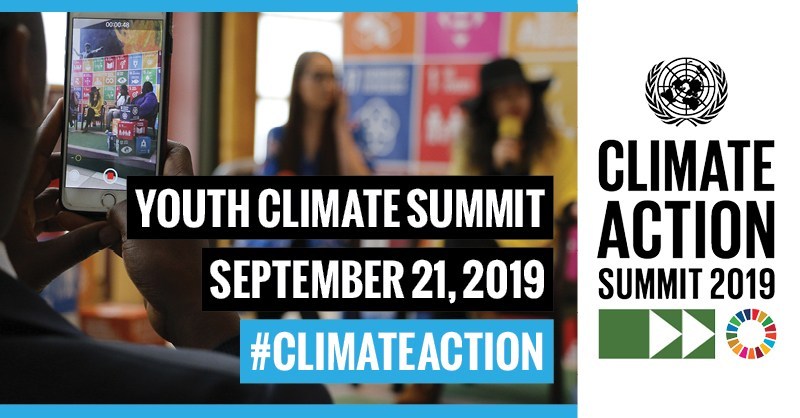Climate Change and the Loss of Cultural Heritage
UNA-USA Blogger Fellow Ella Harvey reflects on her time at the 2019 UN Youth Climate Summit. She highlights an often-overlooked impact of climate change: its negative effects on cultural heritage.
While at the UN Youth Climate Summit, I attended a discussion which really struck a chord with me: “Social and Political Drivers: Cultural Heritage Partnership to Enable Ambitious Climate Action”. The discussion resonated with me because it highlighted a piece of the climate change debate that I feel has been lacking: the cultural repercussions of climate change.
Most of the climate change debate places emphasis on tangible repercussions, such as increased severity and frequency of storms, higher insurance rates, rising sea levels, decreasing property values, and reduced arable land. However, what is not so commonly talked about are the intangible, cultural repercussions of climate change. These include the loss of traditional practices and ways of living.
The loss of cultural practices can lead to reduced social cohesion and society-wide mental health challenges because an individual’s culture is closely linked with his/her/their sense of identity and belonging to a community. Furthermore, what became clear to me during this discussion is that cultural heritage is intimately tied to, and reliant on, humans’ interactions with their natural environment.
Since this discussion was hosted by Greece, many Greek ministers and government officials talked extensively about the impact that rising sea levels and violent storms will have on their country’s ancient ruins. If these ruins are irreparably damaged, Greece will lose more than just tourist revenue. The loss of the ancient ruins poses a much greater threat to Greece’s historical legacy, as well as our global culture.. With the destruction of cultural heritage, climate change is uprooting communities and contributing to the collective loss of ancient ways of life and traditional knowledge systems.
Towards the end of the discussion, Mr. Michał Kurtyka, the State Secretary in the Ministry of Energy in Poland and the President-designate of COP 24, told a story about a trip he took to Fiji. While there, he spoke with local Fijians about how climate change is affecting them. They brought him to the beach and showed him where their ancestors were buried – already 30 meters out into the sea. Their sacred, ancient burial grounds had already been lost years ago to rising sea levels, and they were preparing to lose much more. Climate change is literally cutting people from their cultural roots.
What gives me hope is the fact that cultural resilience can mitigate some of the repercussions of climate change, as resilient and socially-integrated communities are better able to prepare for and recover from extreme events. Even while our cultural heritage is being threatened by climate change, it is important to remember that cultural resilience can lead to climate resilience.
Preserving cultural heritage is a critical component to understanding how climate change will affect our civilization.




